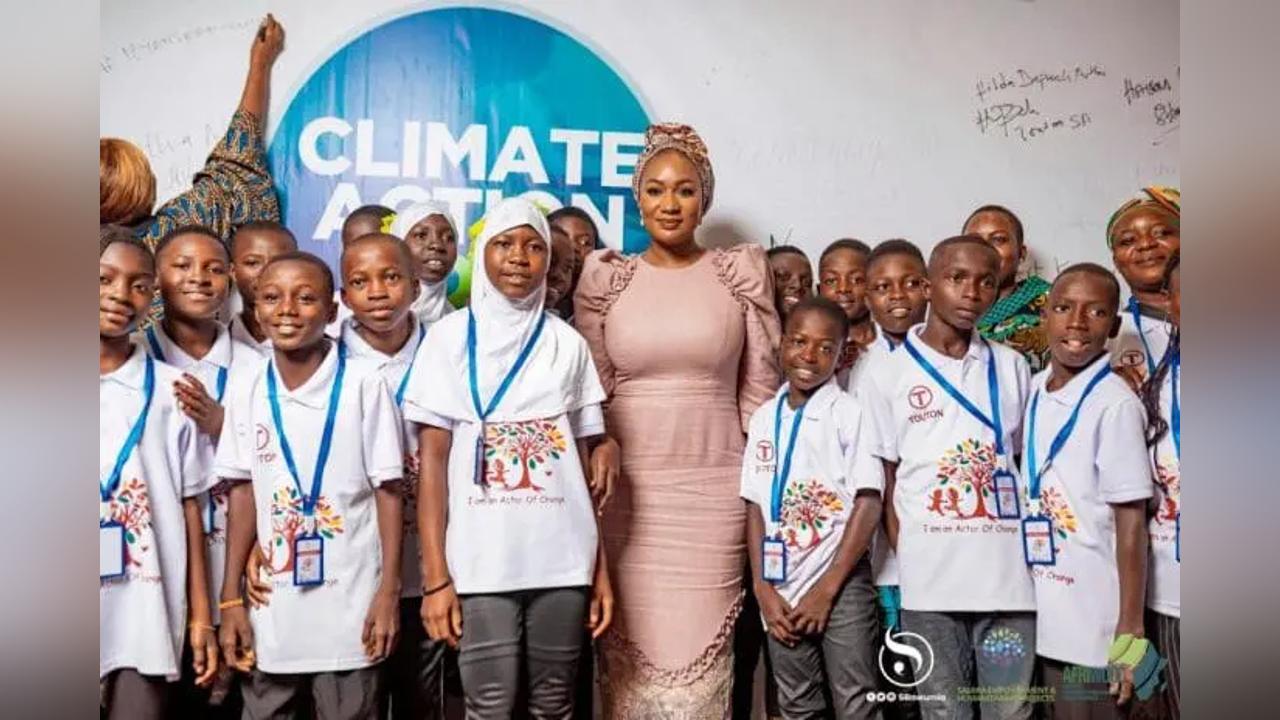Africa-Press – Ghana. The Africa Women and Children Conference has convened in Accra today, bringing together ministers, development leaders, and youth advocates under a theme that places young Africans at the centre of climate solutions. Running through October 7 at the Labadi Beach Hotel, the hybrid conference signals a shift in how the continent approaches climate policy.
Samira Bawumia, founder and chairperson of AFRIWOCC, is co-hosting the event alongside the United Nations Ghana Office under Resident Coordinator Zia Choudhury. The format blends in-person engagements with virtual sessions, extending participation beyond Ghana’s borders to global audiences tracking Africa’s climate trajectory.
The speaker roster reveals strategic thinking about representation. Three environment ministers from Guinea, Zimbabwe, and Uganda will share insights on ministerial implementation, while Dr. Kevin Kariuki from the African Development Bank brings a financing perspective that’s often absent from grassroots climate conversations. But it’s the inclusion of voices like Fatou Jeng, who founded Clean Earth Gambia, and Joshua Amponsem from the Youth Climate Justice Fund that distinguishes this gathering from typical diplomatic forums.
This configuration matters because Africa faces a paradox that organizers openly acknowledge: the continent produces minimal global carbon emissions yet bears disproportionate climate impacts. Floods displace communities, droughts devastate agriculture, and food systems buckle under environmental pressure that Africans didn’t create. Young people inherit these challenges without having caused them, which explains why youth leadership forms the conference’s thematic backbone.
AFRIWOCC isn’t new to this space. Its 2023 maiden edition produced a six-point communique on climate adaptation and mitigation that stakeholders actually referenced in subsequent policy discussions. That outcome matters in a sector where conferences sometimes generate declarations that collect dust. The 2025 edition builds on that credibility by expanding its partnership network to include German Cooperation, Ashesi University, the Kosmos Innovation Center, and the Clean Cooking Alliance alongside the UN and Ghana’s government.
Sessions will examine several interconnected areas: youth climate leadership, education frameworks for building technical skills, governance structures that include rather than exclude young voices, and entrepreneurship pathways that turn environmental challenges into economic opportunities. Technology, innovation, and agribusiness round out the agenda, recognizing that climate solutions need diverse approaches rather than singular fixes.
There’s practical logic behind emphasizing youth involvement. Africa has the world’s youngest population, and these demographic realities mean today’s young Africans will manage tomorrow’s climate consequences for decades. Excluding them from current decision-making creates policy gaps that future leaders will struggle to fill. The conference attempts to close those gaps now rather than later.
The hybrid format acknowledges resource constraints without making excuses for them. Not everyone can afford flights to Accra or hotel accommodations, but virtual participation options mean a student in Nairobi or an activist in Lagos can engage with ministerial discussions and peer sessions. This accessibility expands the conversation beyond elite circles, though whether virtual participants receive equal attention remains an open question.
What’s conspicuously present in AFRIWOCC’s approach is recognition that climate action can’t separate from economic realities. Sessions on entrepreneurship and agribusiness suggest organizers understand that asking communities to abandon livelihoods for environmental goals without viable alternatives creates resentment rather than cooperation. Sustainable solutions need economic sustainability, and that requires innovation in financing, technology transfer, and market access.
Bawumia has consistently emphasized that women and youth voices must be included when addressing continental challenges, and the conference structure attempts to operationalize that principle through panel compositions that mix governmental authority with grassroots experience. Whether this translates into actual policy influence depends on follow-through after closing ceremonies, but the framework exists.
The timing carries weight. With global climate negotiations often dominated by nations responsible for historical emissions, African platforms like AFRIWOCC create space for different narratives, ones centered on adaptation, justice, and the lived experiences of communities already managing climate disruption. These aren’t abstract policy discussions but conversations about survival, opportunity, and futures that young Africans will either shape or endure.
As sessions unfold over the next two days, attention will focus on whether this gathering produces actionable commitments or merely adds to climate rhetoric. Africa doesn’t lack climate conferences; it needs ones that generate tangible outcomes. AFRIWOCC’s track record suggests it understands this distinction, but proving it requires results that extend beyond Accra’s conference halls into communities experiencing climate change firsthand.
For More News And Analysis About Ghana Follow Africa-Press







